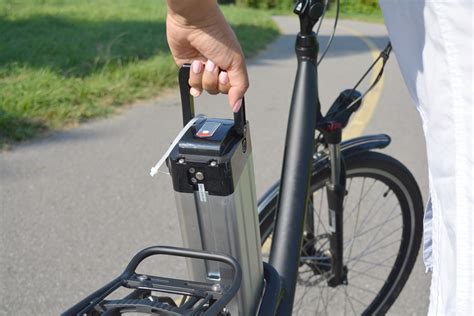With colder weather here, it’s the perfect time to brush up on knowledge about your e-bike’s battery. As your e-bike’s source of power, it’s a great idea to take a little extra care to keep it happy during the winter months and in a good state, ready for when spring comes around! If you plan to use your e-bike all the way through the winter, it’s wise to be prepared for a drop in your battery’s performance in chillier weather. This is quite normal, and today we have some handy tips for getting the most out of your battery, helping to keep you and your e-bike on the road!
Why does battery care matter?
Most e-bikes are powered by lithium-ion batteries, which need certain conditions to be met to keep them performing to the best of their ability. Don’t worry – these conditions aren’t too complex; a few simple steps will help keep it happy and healthy!
The main thing to remember is that e-bike batteries are not well suited to temperature extremes. While riding in the cold can quickly be done, in between rides, good care is essential to keep the battery from deteriorating more quickly than it might otherwise. Let’s look at a few simple things to remember.
How batteries perform in the cold
Your e-bike battery’s performance will naturally drop in lower temperatures – the cold makes the transfer of energy within the battery’s structure less efficient than in more moderate temperatures. This change is perfectly normal, and your battery will return to its normal performance levels once the temperatures start to rise again!
Your e-bike’s range can be affected by a lower battery performance rate. While this shouldn’t be a problem with shorter rides, when you can charge up as and when needed, it’s worthwhile bearing this in mind if you’re planning any longer winter rides. Remember, if you are riding a quality ebike and the battery runs out, it’s been designed to perform like a standard bike even without the power assistance!
Your e-bike may get a little dirtier on wet or salty winter roads. When cleaning down after a ride, wash by hand rather than with a pressure washer to help protect all electric components (including the battery) from accidental water damage.
An ideal temperature
When outdoor temperatures drop below the 40-degree mark, it’s best to bring your battery into a climate-controlled environment or the whole bike if integrated into the frame. Storing the battery in a dry place away from lower temperatures can contribute towards a much longer lifespan!
It’s best to allow your battery to come to room temperature before charging it – so if it’s just come in from the cold or it’s still warm from your most recent ride, allow it to acclimatize for a little while before charging.
Regular over-winter checks
Planning to give your e-bike a bit of a rest over the winter months? If it’s not going to be used for more than a month, we recommend that you take a regular check of the battery’s status while it’s out of use, and keep it topped up to between 50-70% (once every 2 months should be enough). Why is this necessary, you might ask?
All lithium-ion batteries have a self-discharge function, and keeping the status within this range allows it to self-discharge at a normal rate, without reaching a state of under-charge. This is actually more beneficial to the battery’s lifespan than charging it fully to 100% during times of little use! Therefore, don’t be tempted to keep the battery attached to a charger all through the winter – you could be shortening its useful life.
Pass the knowledge on
We told you these steps were simple! Keep your battery at a suitable temperature and charged status, and you’ll be all set for jumping into the saddle, whether you keep pedaling through the winter months or you’re waiting for spring to come around.
We hope these tips have helped you understand how best to keep your e-bike battery happy during the colder season. If you have found this useful, be sure to share it with your e-biking friends and family!

